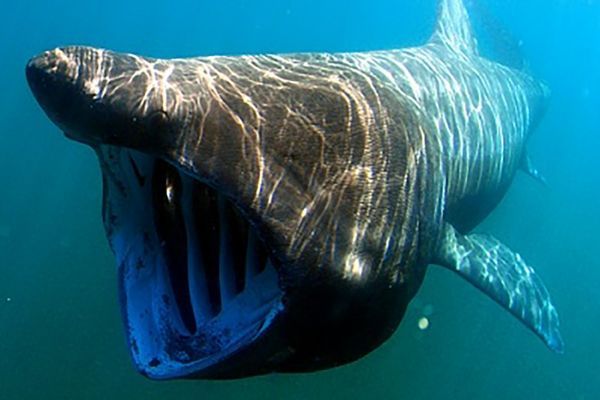The basking shark, the largest shark in the waters off Southern California, is also the most elusive. NOAA Fisheries researchers are now seeking to unravel the mysteries of basking sharks by tagging them with satellite transmitters that will reveal their movements and behavior as they roam the waters around Channel Islands National Marine Sanctuary and beyond.
Often mistaken for great white sharks because of their similar dorsal fin, basking sharks are even bigger—but far less fearsome. The near school bus sized sharks swim through the current, filtering the water for dense clumps of copepods. These tiny crustaceans, about the size of a grain of rice, are their main prey.
Despite its impressive size, little is known about the basking shark’s habitat, behavior, and migratory patterns. NOAA researchers expect the satellite tags to provide important new details about the sharks that spend at least part of their lives in Channel Islands National Marine Sanctuary.
“These data will help fill gaps in our understanding of basking sharks’ movement, their overlap with fisheries, and how oceanography influences the species’ distribution,” said Heidi Dewar of NOAA Fisheries’ Southwest Fisheries Science Center and the project’s lead scientist. “All of this information is vital for the continued management and conservation of these poorly-understood sharks.”
Continue reading at NOAA.
Image via NOAA.


